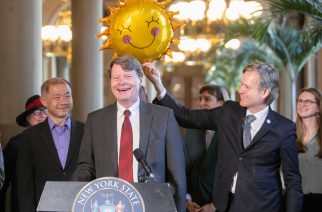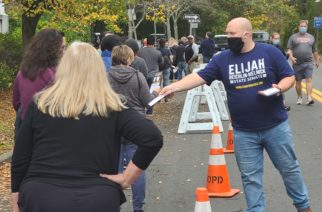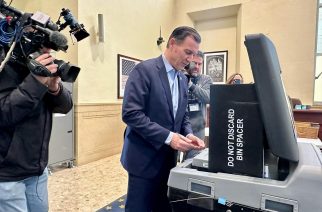
The New York Public Interest Research Group — New York’s largest student-run watchdog group — unveiled a new report detailing the significant role that campaign contributions play in electing state legislators.
According to the report, the majority of campaign contributions for state legislators still come from a small handful of large donors, mostly in the form of organized interest groups, businesses and elites. In the report, NYPIRG lists a number of recommendations to achieve a “model for the nation” public campaign financing program.
The report finds that little has changed since Gov. Mario Cuomo established a special commission to deal with the problem in 1988, with Gov. Andrew Cuomo following suit just five years ago. Now, a new commission — the New York State Public Financing and Elections Commission — is holding hearings statewide on the issue of campaign contributions and is expected to issue recommendations by December 1.
The new NYPIRG report takes a fresh look at recent fundraising for 2018 state legislative campaigns. The report finds that organized interests, businesses and individuals contributing more than $200 represented roughly 90 percent of all of the money raised by the winners of both Senate and Assembly elections.
Forty percent of all campaign contributions occur in March, coinciding with the final stages of developing the state budget. In total, more than $41 million was raised in the 2018 election cycle. Winning Senate candidates raised $25.5 million and Assembly candidates raised $15.6 million. The majority of all donations came from New York’s three wealthiest counties: Nassau, Westchester and Manhattan.
“New Yorkers are presented with a system that is largely underwritten by the wealthy and powerful, rather than one supported by the overwhelming number of citizens who do not get directly involved in political campaigns,” the report states.
The report suggests a number of solutions including a public dollar match on small donations (less than $175) similar in style to New York City’s public campaign finance system, and lowering the cap on campaign contribution limits.
New York currently has the highest cap on campaign contributions, more than any other state with set limits. The report also suggests imposing limits on “housekeeping” accounts, accounts with no contribution limits intended to be used for routine costs of running a political party, not any specific candidate. The report also recommends requiring the disclosure of so called “bundling,” where lobbyists and other interest groups can dodge lower limits and increase influence by bundling together many small donations toward a single candidate or policy.
The report also suggests placing restrictions on lobbyists, lobbyists’ PACs, and those seeking or receiving government contracts, from making campaign contributions.
“At the heart of some of Albany’s most high-profile scandals have been the trading of donations for political support of legislative or regulatory favors,” the report states. “This relationship must be severed by sharply curtailing the political donations these contract vendors, lobbyists and their fundraising arms may make.”









